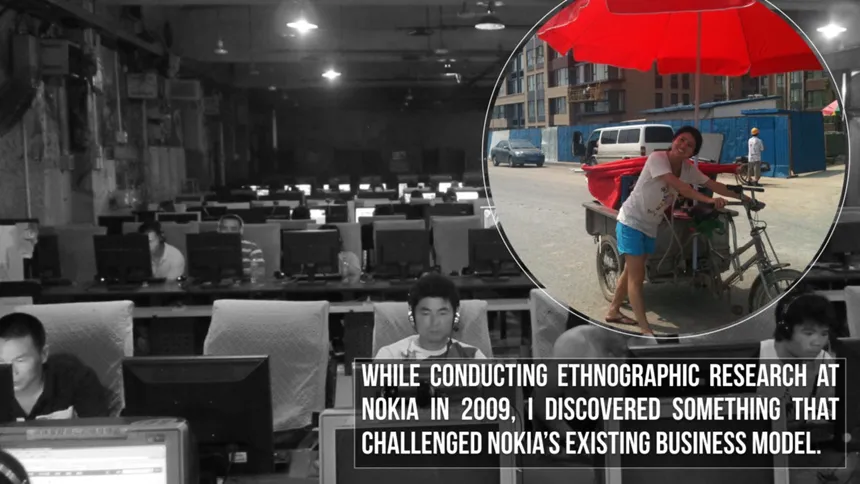Why we need to talk about Thick Data

Originally published by Olly Benson – 27th February 2018
I’m old enough to remember when a Nokia was the phone of choice. Nokia had a great market share and business was booming.
Tricia Wang was a researcher, doing qualitative research for Nokia with consumers, who picked up signs that consumers wanted something different, and were prepared to pay for it. She reported it to her seniors at the company, but her small data sample didn’t tally with what their data was telling them. They ignored her; and the rest is history. Nokia now has a market share of 3%.
There are parallels with healthcare. We produce reams of healthcare data and statistics, with data on every drug prescribed by doctors in England through to the number of patients admitted to A&E for cabbage-related incidents (well, perhaps not cabbages but almost everything else). And yet, whilst this data is extremely valuable to measure how well we are currently doing, rarely does it allow us to explore what we could be doing; and what the future holds.
Tricia’s article makes the case that too often we assume that the larger the dataset the better insight we will get. And yet, all those numbers rarely tell the whole story: they are a snapshot without context. For far better insight, we need to collect qualitative data that contains stories, emotions and meaning. Or, as the author has labelled it, Thick Data.
We use Thick Data a lot in Horizons. Yes, we can report numbers, but we can only demonstrate our true value if we go beyond those numbers and look at the stories and examples.
Although quite long, this is a great read at explaining the importance of Thick Data alongside Big Data; and the importance of stories in helping organisations move forward.
Thick Data is the opposite of Big Data, which is quantitative data at a large scale that involves new technologies around capturing, storing, and analyzing. For Big Data to be analyzable, it must use normalizing, standardizing, defining, clustering, all processes that strips the the data set of context, meaning, and stories. Thick Data can rescue Big Data from the context-loss that comes with the processes of making it usable.

TWEETS ON THIS SUBJECT
